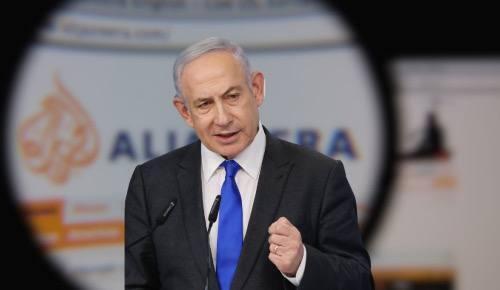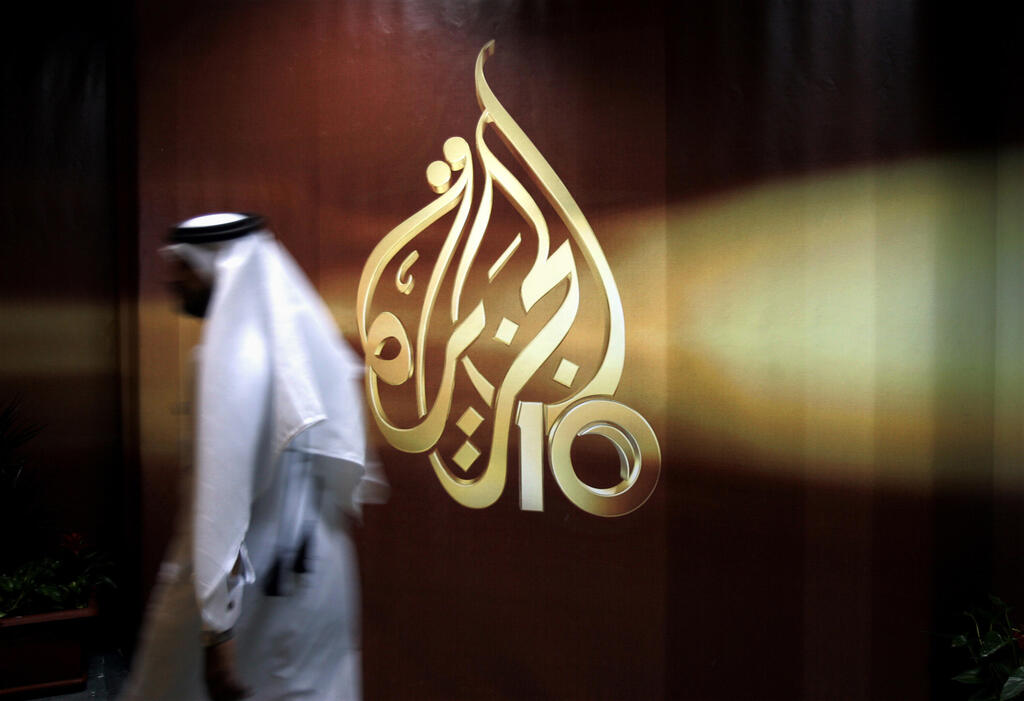Getting your Trinity Audio player ready...
Al Jazeera has considerably grown since late Egyptian President Hosni Mubarak sarcastically summed up his visit to the Qatari network's headquarters. "Small as a matchbox and making the noise of a cannon," he quipped. Today, the offices have expanded, and the entrance is heavily guarded like a military base.
With technological advancements and a growing budget over the years, Al Jazeera has become the first Arab channel to feature both left- and right-wing Israeli figures in its news programs. Even the broadcasting methods have changed: Al Jazeera in English broadcasts relevant content, while the more popular Arabic channel, employs disturbing and provocative coverage regarding Israel.
One needs to understand how Al Jazeera operates in Israel: the veteran head of the office, Walid Omary (who is a personal friend of mine), operates from Ramallah and Jerusalem. The channel's offices are located in Jerusalem's studios, like most foreign networks. Not a single bad word can be said about Omary, a native of the village of Sandala near Afula.
He is intelligent, professional, well-versed in Israel and meticulous about delivering objective reports. His team members also work in the same spirit. For a long time, they have been granted entry permits to Israeli press events. Occasionally, they reach out to me and my colleagues in Tel Aviv to verify details, clarify reports or obtain Israeli officials' contact information.
The root of the problem lies at the heart of the channel in Doha. Until two years ago, senior journalists managed the channel. Today, the media empire is controlled by a family close to the ruler, who directs broadcasting according to instructions from the palace.
If Israel carries out its threat to shut down Al Jazeera, it will join a questionable group of countries which includes Egypt, Jordan, Morocco and Bahrain, along with the UAE, Iran and Iraq which are on the fence. However, the bad news is that it's not really possible.
Al Jazeera doesn't give up. The trick is to arrange an interview with people from one of the "forbidden countries," by contacting them on social media and broadcasting them live. The quality is very good, and I haven't encountered a senior figure who has refused to appear. Even if they face repercussions from the authorities for circumventing the ban.
What likely broke the camel's back with Al Jazeera was a "report" that surfaced from Gaza not too long ago, alleging that IDF soldiers had sexually assaulted a Palestinian woman. It's hard to describe the magnitude of shock and denial, justified anger, that spread through all Al Jazeera branches. It took three or four days until Yasser Abu Hilala, the former director, posted on X dismissing the allegation. He admitted it never happened, and admitted it was a mistake without apologizing.
But the damage has been done. The story spread like wildfire to every street corner in the Arab world, even reaching me at a conference in Europe that I attended with senior Israeli officials. Then it evolved into a "rape story." We rushed to deny it, and when we didn't receive an apology from the other side, but rather they'd say to us "the story was even broadcast on Al Jazeera." We walked out in dismay.
Israel has tried to shut down Al Jazeera three times in the past decade. What's troubling this time is the reaction from Washington. Senior U.S. officials are "astonished" and lodge complaints against Israel over the announcement. On one hand, we are a democratic state that values freedom of speech, and on the other hand, we wish to close down Al Jazeera and the Hezbollah-affiliated Al Manar channel, which is also active in our territory.
The bad news: we can't take down Al Jazeera, which broadcasts through satellites. They will broadcast from Ramallah and there's also no way to stop the channel's journalists who hold Israeli credentials. The only option would be to limit their movement, but only the police can do so. I predict Al Jazeera will continue to be a nuisance.





